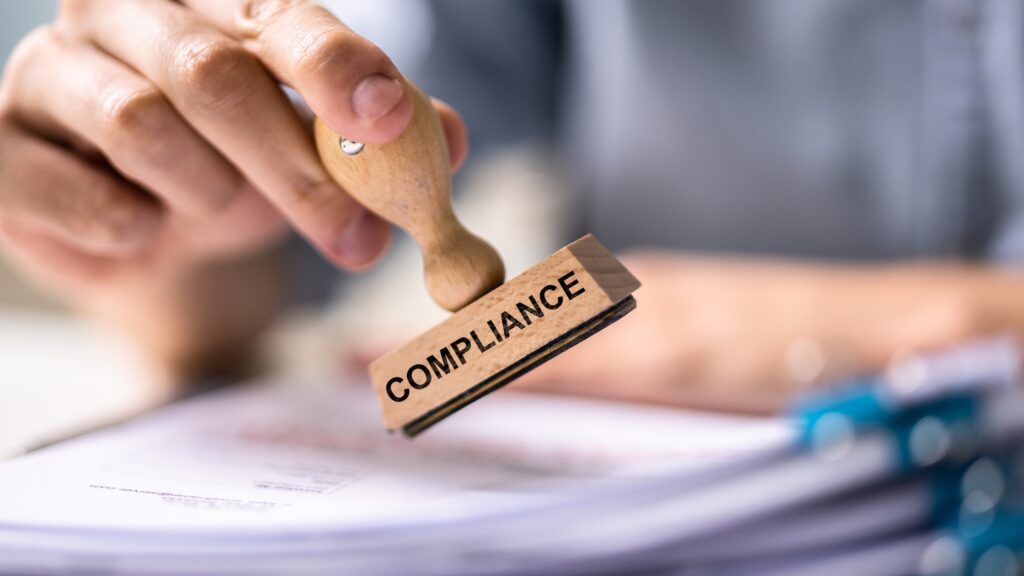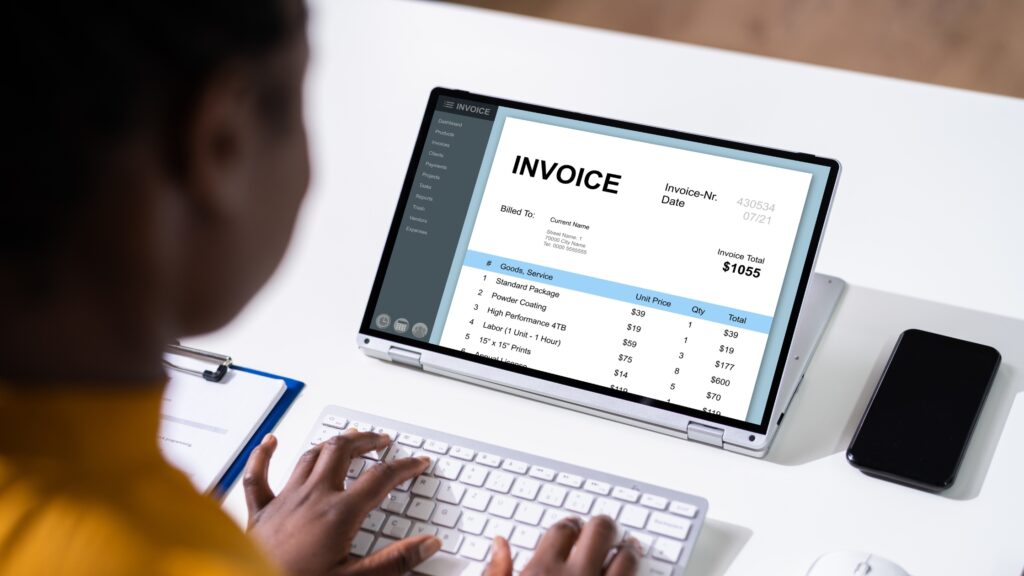15 Ways to Ensure Your Company is Legally Compliant

Running a business means juggling a lot of responsibilities. You try to keep things running smoothly, making sure your employees are happy, and, of course, staying on top of your legal obligations. Tax compliance isn’t just about ticking boxes; it’s about protecting your business from penalties, keeping your finances in check, and making sure you’re operating above board.
To help business owners and sole traders navigate tax compliance obligations and avoid unnecessary stress, the tax and bookkeeping experts at Shoebox Books have put together this essential guide to keeping your company in line with Australian tax laws and regulations. Ready to learn more? Let’s get started!
What is Business Tax Compliance?
Simply put, tax compliance means following the rules set by the Australian Taxation Office (ATO). This includes understanding tax obligations, managing tax liabilities, lodging tax returns on time, and ensuring payroll compliance for employees. Non-compliance can lead to penalties, audits, and legal trouble, things that no business owner wants to deal with.
1. Keep Communication Open and Honest
One of the easiest ways to stay compliant is to ensure there’s clear and open communication between you and your employees. If a mistake is made—whether it’s a tax issue or a legal slip-up—it’s best to know about it early so you can fix it before it becomes a major problem.
2. Centralise Your Business Communications
Having everything in one place makes life easier. Whether it’s using Slack, Basecamp, or another software to manage staff communication, keeping records of important business discussions and tax-related information can help ensure compliance.
3. Use the Right Accounting Software
Trying to manage your finances with piles of paperwork is a recipe for disaster. Good accounting software like Xero, MYOB, or QuickBooks can help you track income, expenses, and taxable income with ease. If you’re not sure where to start, a bookkeeper can assist in setting things up and provide professional services to ensure your compliance.

4. Keep Your Financial Records Organised
It is crucial to understand the role of organised records in ensuring compliance and making informed business decisions. A messy business is a stressful business. Staying on top of your records, including invoices, receipts, and payroll will make tax time a whole lot smoother. Plus, if you ever get audited, you’ll have everything in order.
5. Secure Your Business Documents
We cannot stress enough the importance of this. The most basic safety measurement is to encrypt all your important files. Encrypting sensitive documents and restricting access ensures only the right people can view them. This is a simple but essential step to protect your business and comply with Australian data protection laws.
6. Log Every Single Expense
Small expenses add up fast. Keeping track of every business expense, no matter how minor, ensures that you don’t miss out on deductions come tax time. Plus, it helps paint an accurate picture of your financial situation. It is important to not only log absolutely ALL your expenses, but also to log them in straight away.

7. Conduct Regular Audit Checks
Regular audits help catch errors before they turn into costly problems. If you don’t have the skills to deal with audit checks and finances, you may consider hiring a bookkeeper or accountant to perform professional audit checks.
8. Set Up an Online Invoicing System
Chasing invoices is a hassle, but using an online system makes it easier to track payments and keep financial records accurate. Plus, it looks more professional and makes it easier to comply with tax reporting requirements.
9. Get Business Insurance
No one likes to think about worst-case scenarios, but having business insurance protects you from unexpected financial hits. It’s an investment in peace of mind. Having a business insurance policy protects not just your business but your clients and customers.

10. Secure Your Website with an SSL Certificate
Don’t worry if you do not know what an SSL Certificate is. While it does have a fancy name, it isn’t anything unheard of. An SSL certificate encrypts your website, making transactions secure and protecting customer data. Installing an SSL certificate onto a company’s web server ensures the server has a secure connection with other browsers. Once a certificate is installed, the web link address will change from “http” to “https” where the “s” stands for secure. In some cases, the browser may show a padlock instead.
11. Write Down Your Policies and Procedures
Having a company policy manual keeps everyone on the same page. Employees know what’s expected of them, and you have a clear reference point for workplace rules, compliance requirements, and tax-related procedures.
12. Stay Ahead of Potential Risks
Every business faces risks, but the key is to identify them early. Assessing potential risks, whether financial, legal, or operational, can help you stay one step ahead and avoid costly mistakes.

13. Keep Your Business Fair and Transparent
Nobody wants to accidentally break the law. Ensuring transparency in how your company conducts business when it comes to finances reduces the risk of compliance issues. If you’re unsure, getting a second opinion from a legal or financial expert is always a good idea.
14. Notify ASIC About Company Changes
If you change your business name, address, or key personnel, you need to inform ASIC (Australian Securities and Investments Commission). Failing to update your details can result in fines or legal headaches down the line.
15. Get Expert Compliance Advice on Legal Requirements
Compliance isn’t just about ticking boxes, it’s about making sure your business is on the right track for long-term success. Working with a tax expert or bookkeeper can help you stay informed, reduce risks, and make sure you’re meeting all Australian tax system requirements.

The Bottom Line: Tax Compliance is an Ongoing Commitment
Keeping up with tax compliance obligations and legal requirements for a business doesn’t have to be overwhelming. Staying organised, keeping clear records, and seeking expert advice when needed can help you manage risks and ensure your business stays on the right side of the law. It is crucial to understand compliance requirements to make informed decisions and ensure your business adheres to all legal standards.
At Shoebox Books, we assist business owners with tax compliance, bookkeeping, and financial management. With locations across Australia, you are sure to find the support you need. If you need a hand keeping your business legally compliant, get in touch with us today!
Frequently Asked Questions
What are the ATO requirements for maintaining business compliance?
For any business looking to demystify business tax compliance, it’s important to meet tax compliance obligations such as lodging tax returns, reporting taxable income, and paying tax on time. This includes registering for an ABN, keeping financial records, and adhering to payroll compliance for employees. For detailed requirements, visit the Australian Taxation Office (ATO) website.
How much can my business earn before I pay tax in Australia?
For sole traders, the tax-free threshold is $18,200. However, companies must pay tax on all profits, with corporate tax rates varying based on turnover and business structure. Businesses operating under a trust or partnership may have different tax obligations. For up-to-date thresholds, refer to the ATO income tax guide.
What are the factors affecting tax compliance?
Tax compliance is influenced by factors such as changes in tax legislation, business structure, record-keeping practices, and awareness of legal obligations. Non-compliance can result in penalties, audits, or legal consequences. Businesses must stay informed about their tax liabilities, payroll compliance, and reporting requirements to avoid risks. For compliance in business, visit the ATO’s compliance page.
What is an ATO compliance certificate?
An ATO compliance certificate is not a standard requirement but may refer to documentation proving tax compliance, such as a tax clearance certificate or confirmation of meeting tax obligations. This may be required for business transactions, government tenders, or financial approvals. For clarification, visit the ATO’s website or consult a tax professional.